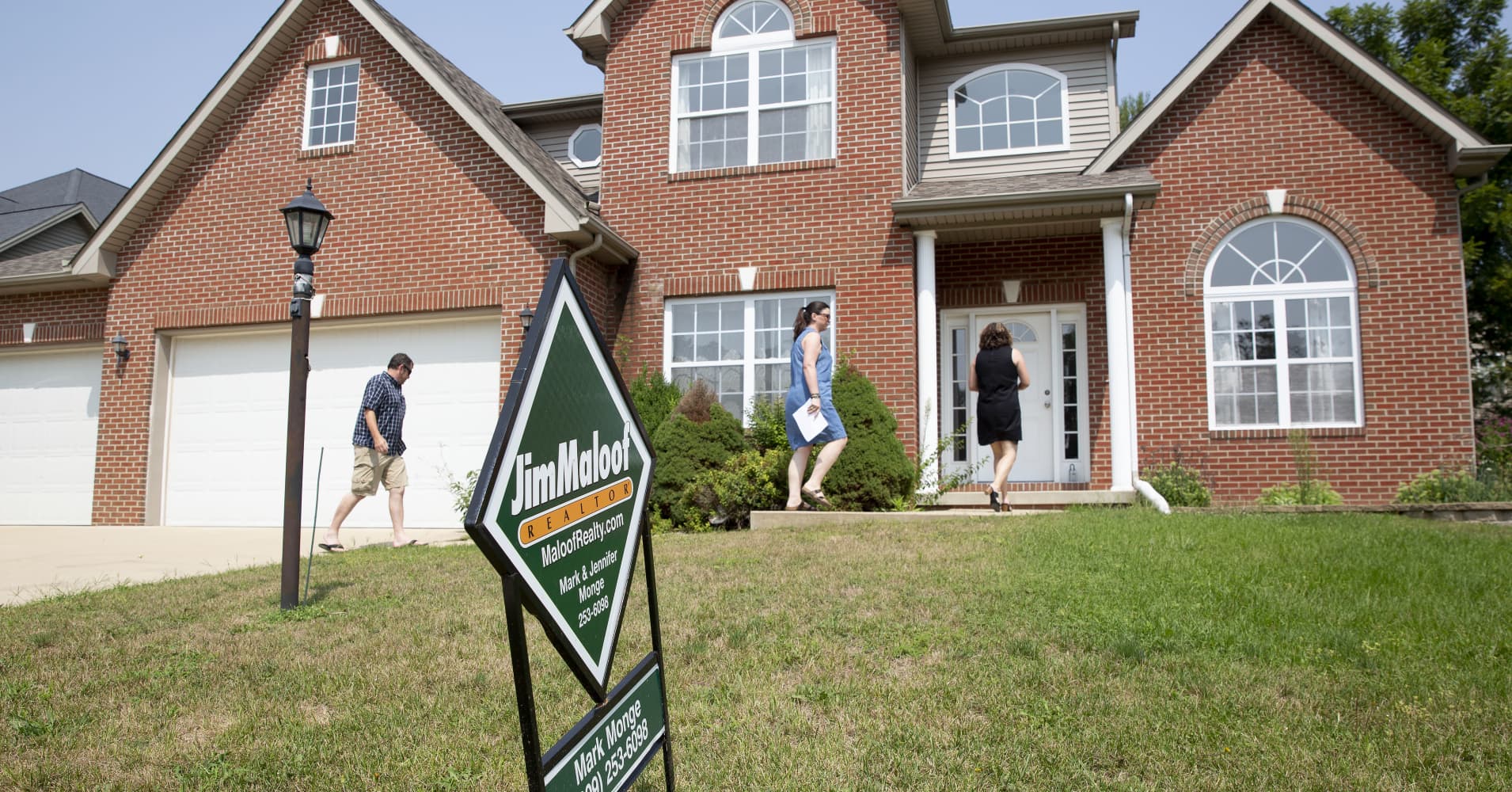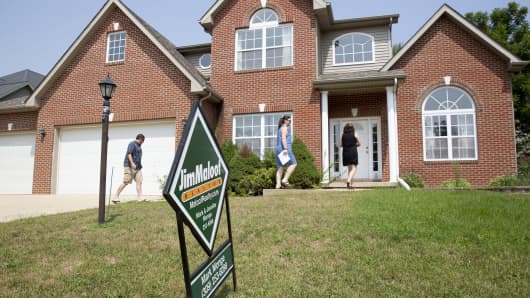More consumers now see the door to homeownership slowly squeaking open, but they still think it's pretty pricey.
The share of Americans who say it is a good time to buy a home increased 4 percentage points to 15 percent in January compared with December, according to a monthly survey from Fannie Mae. The share is still down sizably from the start of 2018, when housing demand was soaring and home prices were rising at a much faster clip.
Home price gains have been shrinking since last summer and are now rising at the slowest pace in more than six years, according to CoreLogic. Consequently, the share of Americans who say home prices will go up fell 1 percentage point to 30 percent. That share has been declining for four straight months and is down a whopping 22 percentage points from a year ago, according to Fannie Mae.
While consumer confidence in housing is rising this year, it was still a bit unsteady in the fourth quarter of last year.
Seventy-six percent of potential home buyers estimated they could afford fewer than half the homes for sale in their markets, according to a year-end poll from the National Association of Home Builders. That share is lower than the 79 percent who shared that perception in the fourth quarter of 2017, but not by much.
"In the year ended in the fourth quarter of 2018, there was not a lot of change in how homebuyers perceived their ability to afford homes available in their markets," said Rose Quint, author of the NAHB survey.
Attitudes toward homebuying are improving this year because it appears that mortgage rates will not be increasing as much as previously expected. The share of those who expect rates to go up over the next year fell 3 percentage points to 53 percent in the Fannie Mae survey. The Federal Reserve has signaled it may not be as aggressive in hiking interest rates as previously forecast.
"Overall, these results are in line with our forecast that, amid improving affordability conditions, home sales should stabilize in 2019 after declining last year for the first time in four years," said Doug Duncan, Fannie Mae's chief economist.
Cooler home prices and lower interest rates certainly increase affordability and help consumers feel better about buying, but the biggest change influencing that sentiment is consumers' perception of their own wealth.
The share of those who say their household income is significantly higher than it was a year ago increased 8 percentage points to 27 percent. That is 11 percentage points higher from the same time last year.
In addition, fewer Americans said they were concerned about losing their jobs.




